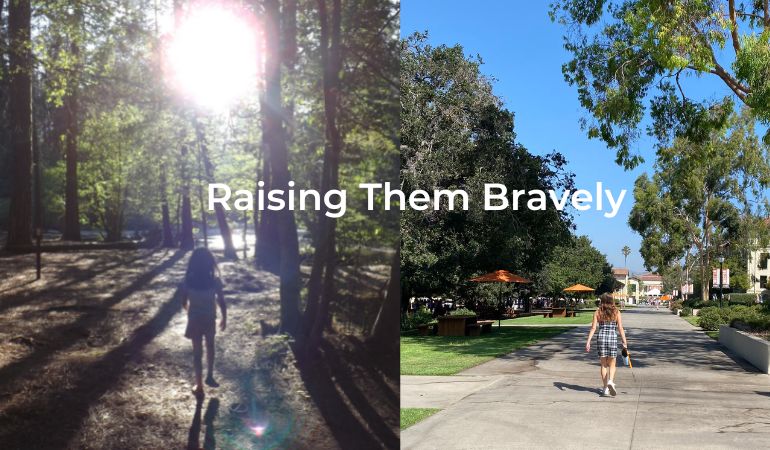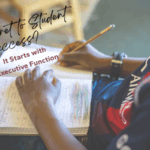The U.S. Department of Labor’s prediction that 65 percent of our children’s careers haven’t been invented yet seems even more relevant today: What will the world be like when our children step into it as adults?
There are multitudes of inspiring potentials and plenty of worrisome perils too. I encourage us to consider this question: How do we raise our children and adolescents so that, when adults, they enter bravely the world–this world with all its complexities, opacities, joys, and sorrows?
Recently I read Viktor Frankl’s classic, “Man’s Search for Meaning.” A trained, practicing psychiatrist, he was imprisoned in Auschwitz at age 37. Frankl spent three years in the concentration camps where his family, including his parents and wife, died.
In his book, Frankl describes the different ways prisoners responded to the beyond-hellish conditions and existence in which they found themselves trapped with no end in sight. He notes that concentration camp prisoners had a variety of responses, from nihilism, despondency, and defeat, to savagery and selfishness, to generosity and compassion. He famously wrote,
We who lived in concentration camps can remember the men who walked through the huts comforting others, giving away their last piece of bread. They may have been few in number, but they offer sufficient proof that everything can be taken from a man but one thing: the last of the human freedoms–to choose one’s attitude in any given set of circumstances, to choose one’s own way.
That last line always makes me pause: “…to choose one’s attitude in any given circumstances, to choose one’s own way.” It seems to be the core of any fruitful answer to the existential questions of our day: How do we help our children internalize the attitudes that will empower them to dare to live full, purposeful, expansive lives? How do we support them in expanding curiously, not contracting fearfully, into their lives?
Here are four strong strategies for empowering children with the most beneficial attitudes that I’ve discovered throughout my life and my work:
- Rejoice in and fully support what captures our children’s interests. Whether it’s ornithology, baking, dinosaurs, woodworking, lacrosse, aquaponics, protecting endangered great apes, geometry, ceramics, studying the history of the Byzantine Empire, Rubik’s Cubes, baseball…nurture their budding passions to keep them excited about life and learning.
- Let them fail and cheer them to “get back on the horse.” This is so, so important (Jessica Lahey’s book, The Gift of Failure is a must as is our podcast episode with her). When we rush in to rescue our children from struggle or to protect them from the consequences of their actions – all from loving intentions no doubt – we send the message to them that they are not capable or that failure is catastrophic. We know it is not. Those who accomplish much in their lives inevitably have a trail of failures and struggles behind them. They see their failures as stepping stones to success. Share this belief with your children often, and share your own stories of the past failures and struggles that helped make you into who you are today.
- Praise our children’s efforts more than any final product or inherent qualities or talents we see in them. It’s more effective to say “I noticed you worked really hard on that…” instead, “You’re so smart!” Or, “Tell me about how you created that complicated texture…” instead of, “You’re so artistic!” This teaches them to adopt the growth mindset attitude that it is through effort that we find meaning and success, regardless of how many times we must try.
- Role model and equip them with a pro-social worldview. Darwin’s observations on natural selection are popularly interpreted to be that humans who are the most individualistic and ruthless survive. In fact, his observations showed so powerfully that humans flourish when we know how to cooperate, support, and uplift and learn from each other within communities. Work to ensure our children see and experience the power and benefit of developing positive, caring, helpful relationships with others. A network of strong, supportive relationships empowers our children to feel confident in the world and humanity.
In the summer of 2019 when he entered hospice and knew he was dying, my father mentioned a number of times to his family this teaching from the Talmud, the sacred Jewish text that offers rabbinic commentary on the meaning of the Torah, the Hebrew Bible:
A wedding procession and a funeral procession meet at an intersection too narrow to pass. One group has to go first. The rabbis conclude that the funeral procession should step aside and let the wedding procession go first: the wedding procession is the future. They are hope. They affirm life.
What is life-affirming, what is optimistically future-focused, is what we should always choose. This is not to deny or disregard the past or sorrow and struggle. Not at all. It is to prioritize ultimately, though, life and the future; to rise from our weariness or sadness and to continue to engage fully, and even joyfully, with life.
There is no doubt that it is difficult to be a human being right now. And, we human beings are strong and creative, and capable. I encourage us all to model for our children saying yes to life. Let’s show them that we know in our bones and believe fiercely in the positive potential in children and adolescents. Let us continue to equip our children with the skills, attitudes, and relationships that will best prepare them to step into the world as courageous and vibrant adults. There truly are so many possibilities, many of which we’ve not even yet imagined.

As Head of School, Sam is responsible for ensuring that Marin Montessori flourishes and that the School’s mission is brought to life each and every day.





